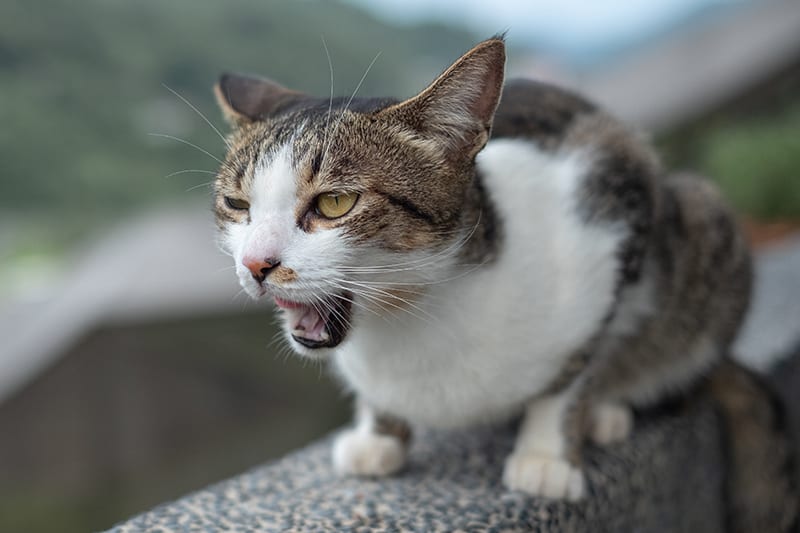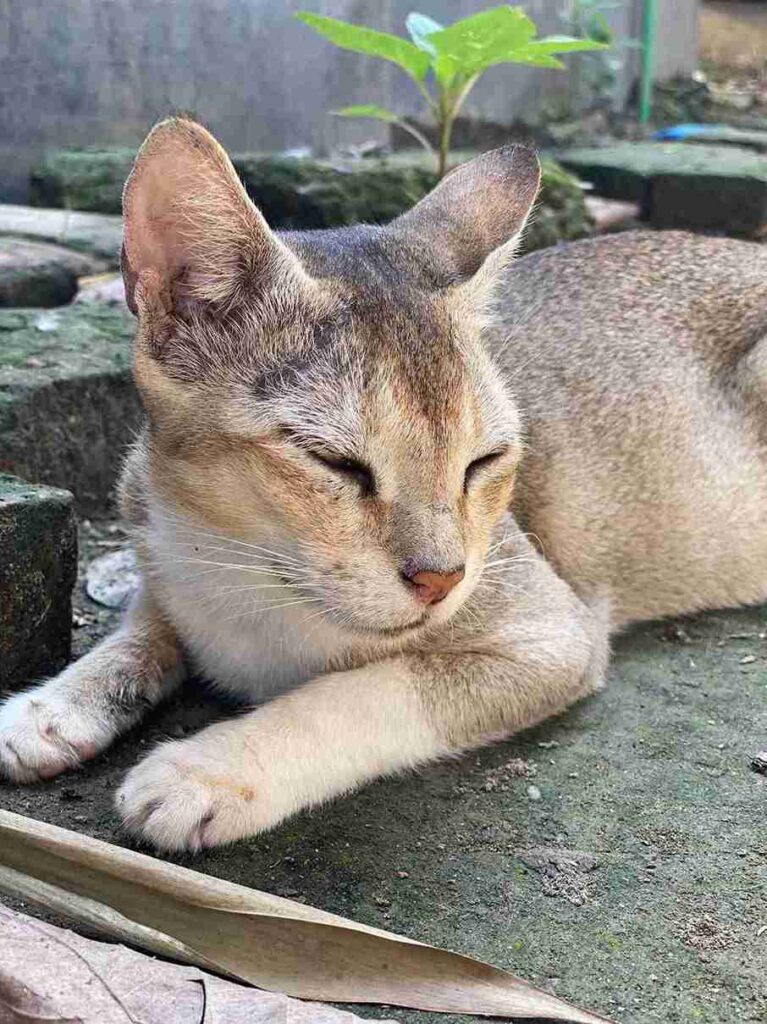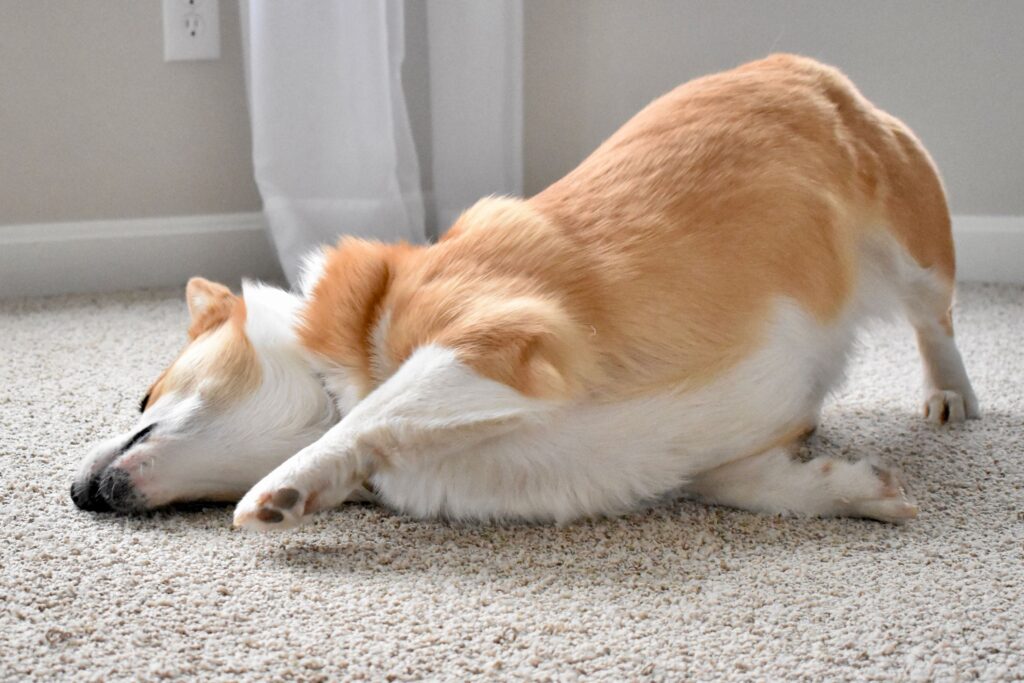Cat panting can be a sign of an underlying health issue. It’s important to address this concern promptly to ensure the well-being of your feline companion.
Contents
- 1 Understanding The Normal Breathing Patterns Of Cats
- 2 Common Causes Of Panting In Cats
- 3 Recognizing Signs Of Distress In Panting Cats
- 4 When To Worry About Your Panting Cat
- 5 Tips To Help Your Panting Cat
- 6 Prevention And Care For Panting Cats
- 7 Frequently Asked Questions On Why Is My Cat Panting? Should I Worry About It?
- 8 Conclusion
Understanding The Normal Breathing Patterns Of Cats
Understanding the normal breathing patterns of cats is important for cat owners to recognize if their cat is experiencing abnormal breathing. Cats normally have a respiratory rate of 20-30 breaths per minute. Their breathing should be quiet and effortless, with the chest expanding and contracting smoothly.
Several factors can affect the respiratory rate and pattern in cats. For example, exercise, stress, excitement, and high temperatures can increase the rate. On the other hand, cold temperatures, sedation, obesity, respiratory infections, and heart or lung conditions can decrease the rate.
Recognizing abnormal breathing in cats is crucial as it may indicate underlying health issues. Signs of abnormal breathing include rapid or shallow breaths, open-mouth breathing, panting, wheezing, coughing, or struggling to breathe. If your cat is exhibiting any of these symptoms, it is important to consult a veterinarian to determine the cause and appropriate treatment.
Common Causes Of Panting In Cats
When it comes to cats panting, it can be a cause for concern for cat owners. Cats typically don’t pant like dogs, so if you notice your cat panting, it’s important to understand the underlying reasons. Common causes of panting in cats include heatstroke and overheating. Cats are more prone to heatstroke due to their limited ability to sweat. Stress and anxiety can also lead to panting in cats. It’s important to create a calm and stress-free environment for your feline friend. Additionally, respiratory issues such as asthma or infections can cause panting in cats. If your cat is displaying persistent panting along with other respiratory symptoms, it’s crucial to consult a veterinarian for proper diagnosis and treatment. Physical exertion can also make cats pant, especially after play or exercise sessions. However, if your cat is panting excessively or if the panting is accompanied by other worrisome symptoms, it’s best to consult a veterinarian to rule out any underlying health issues.
Recognizing Signs Of Distress In Panting Cats
Recognizing signs of distress in panting cats is essential for cat owners to ensure the well-being of their furry friends. Abnormal panting behavior should be a cause for concern and prompt further investigation. One potential reason for panting in cats is heatstroke or overheating, which can occur during hot weather or when a cat is exposed to high temperatures for an extended period. Signs of heatstroke may include excessive drooling, lethargy, rapid breathing, and bright red gums. Another cause of panting in cats is stress-induced behavior. Cats may exhibit panting as a result of anxiety or a stressful environment. Other accompanying behavioral changes may include hiding, aggression, or excessive grooming. Additionally, respiratory distress can present as panting in cats. Coughing, wheezing, or open-mouth breathing are signs that indicate potential respiratory issues. If you observe any of these signs of distress, it is advisable to consult with a veterinarian to determine the underlying cause and appropriate course of action.
When To Worry About Your Panting Cat
Panting in cats is not as common as in dogs, but it can sometimes be a cause for concern. Normal panting in cats occurs during or after physical exertion, in hot weather, or when they are anxious or stressed. It helps them cool down and regulate their body temperature.
However, abnormal panting can indicate an underlying health issue and should be taken seriously. If your cat is panting excessively, has difficulty breathing, coughs, wheezes, or has blue gums, it could be a sign of a respiratory, cardiovascular, or other serious problem.
If your cat is experiencing abnormal panting, it is essential to identify any potential underlying health issues. Some possible causes of abnormal panting in cats include heart disease, asthma, lung infections, pain, fever, or obesity.
Consulting with a veterinarian is crucial when your cat is panting abnormally. They will be able to perform a thorough examination, run diagnostic tests, and provide a proper diagnosis. Early intervention can make a significant difference in your cat’s health and well-being.
If your cat is panting excessively and appears distressed, it is important to take immediate action. Do not delay seeking veterinary care. Keep your cat calm, provide a cool and quiet environment, ensure proper hydration, and avoid any physical exertion that could worsen their condition.
Tips To Help Your Panting Cat
Panting in cats can be a cause for concern. If your cat is panting, it may indicate an underlying health issue or stress. Consulting a veterinarian is recommended to determine the cause and provide proper care for your feline friend.
Cooling Techniques For Cats Suffering From Heatstroke Or Overheating
Cats can sometimes experience heatstroke or overheating, leading to panting. Providing immediate relief and assistance to your cat is essential in such situations. Some cooling techniques to consider include:
- Placing a cool towel or blanket near your cat’s resting area to help lower their body temperature.
- Filling a shallow bowl with cool water for your cat to drink from, encouraging hydration.
- Using a fan or air conditioner to circulate cool air in the room and create a comfortable environment for your cat.
- Avoid exposing your cat to direct sunlight or hot surfaces. Keep them in a shady, well-ventilated area instead.
- Consulting with a veterinarian to ensure appropriate treatment for heatstroke, especially if the panting persists or is accompanied by other concerning symptoms.
Managing Stress And Anxiety In Cats
Stress and anxiety can also cause panting in cats. Creating a calm and soothing environment for your cat can help alleviate these issues. Consider the following strategies:
- Providing a safe and secure space where your cat can retreat to when feeling overwhelmed or anxious. This can be a secluded corner, a cat tree, or a designated hiding spot.
- Using pheromone diffusers or calming sprays designed for cats to help create a relaxed atmosphere.
- Engaging your cat in regular play sessions to release excess energy and promote physical and mental stimulation.
- Establishing a consistent routine with regular feeding times and playtimes to make your cat feel more secure and reduce anxiety levels.
Providing A Comfortable Environment For Respiratory Support
Respiratory issues can contribute to panting in cats, so it’s crucial to create an environment that supports their respiratory health. Consider the following:
- Keeping the air clean and dust-free by regularly vacuuming and dusting your cat’s living areas.
- Avoiding exposure to smoke and strong odors, as these can irritate their respiratory system.
- Using air purifiers or filters to remove allergens and pollutants from the air, creating a healthier breathing environment for your cat.
- Ensuring proper ventilation in the areas where your cat spends most of their time.
- Consulting with a veterinarian if you suspect any underlying respiratory conditions causing the panting.

Credit: www.northeast-vet.com
Prevention And Care For Panting Cats
Panting in cats can be a cause for concern, as it may indicate an underlying medical condition or overheating. To prevent heatstroke and overheating in cats, it’s essential to take certain measures. Reducing stress factors in your cat’s environment can help prevent excessive panting. This can be done by providing a calm and quiet space, away from loud noises and other potential stress triggers.
Regular veterinary check-ups are important to ensure your cat’s respiratory health. Your vet can monitor any potential issues and provide necessary treatment or advice. Additionally, maintaining a cat-friendly lifestyle can minimize panting episodes. This includes ensuring proper ventilation in the living space, offering plenty of fresh water, and avoiding excessive heat exposure.
Frequently Asked Questions On Why Is My Cat Panting? Should I Worry About It?
When Should I Worry About My Cat Panting?
If your cat is panting excessively, it may be a sign of a serious health issue. Consult a veterinarian immediately to determine the cause and provide appropriate treatment. Excessive panting can indicate respiratory problems, heart issues, heatstroke, or anxiety. Monitoring your cat’s breathing and seeking professional help is crucial for their well-being.
Why Is My Cat Panting For No Reason?
Cats may pant when they are stressed, overheated, or experiencing respiratory issues. It’s important to monitor their behavior and consult a vet if the panting persists or is accompanied by other concerning symptoms.
How Much Panting Is Too Much For A Cat?
Cats usually pant when they are overheated or stressed. If your cat is panting excessively, it may be a sign of an underlying health problem. Contact your veterinarian if you notice prolonged or frequent panting in your cat.
How Long Should It Take For A Cat To Stop Panting?
A cat should stop panting within a few minutes to an hour after excessive exertion or stress. If panting persists or occurs without any obvious reason, it may indicate an underlying health issue, and a vet should be consulted.
Conclusion
To sum up, if you notice your cat panting, it is essential to pay attention to their overall health and behavior. Panting in cats can be a cause for concern as it may indicate an underlying issue. It’s important to observe other symptoms, consult a veterinarian, and take necessary actions to ensure your cat’s well-being.
Keeping a close eye on your furry friend and providing them with proper care is crucial for their overall health and happiness.
Katie Lindsey is a passionate cat lover and founder of Cats Solution, a comprehensive resource for all things feline. With a lifelong love for cats and extensive knowledge in their care and behavior, she provides expert advice and solutions to cat owners. Through her website, Katie fosters a supportive community where cat enthusiasts can find guidance and heartwarming stories. A dedicated advocate for animal welfare, Katie also promotes responsible pet ownership and adoption. Join her on this purr-fect journey celebrating the joy of feline companionship.



